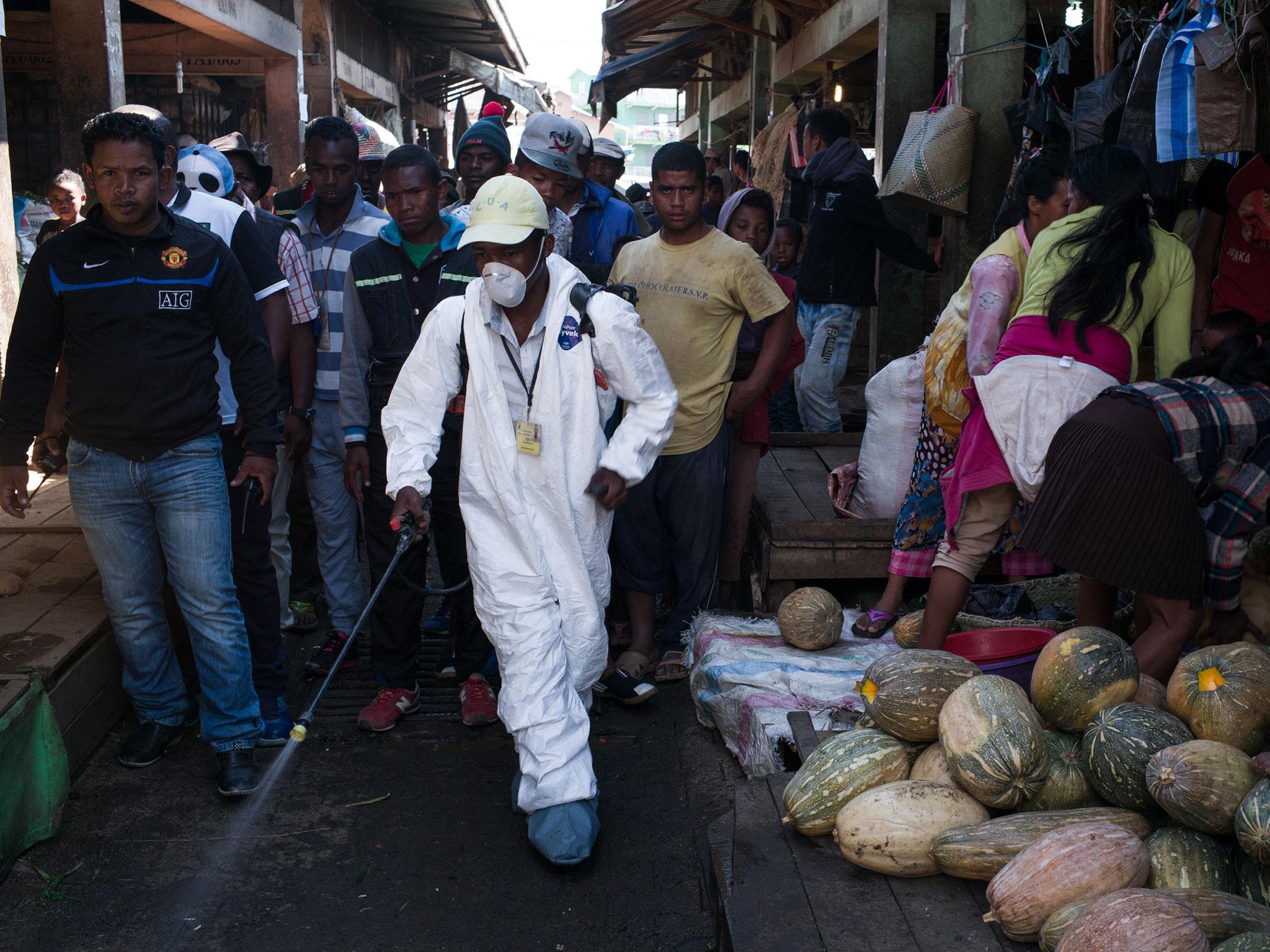Plague outbreak in Madagascar kills 74
Nearly 600 cases of the more dangerous form of plague recorded since late August

An outbreak of plague in Madagascar has killed 74 people over the last two months.
The disease, which is mainly spread by flea-carrying rats, is endemic in Madagascar, where 805 cases have been reported since late August.
Nearly 600 of those cases were the pneumonic form of the plague, which is spread from human-to-human and is more dangerous than the bubonic plague, which is spread by fleas.

The pneumonic form invades the lungs and is treatable with antibiotics. If it is not treated, it is always fatal and can kill a person within 24 hours.
Global health officials have responded quickly to the outbreak.
The World Health Organisation (WHO), which was criticised for its slow response to the 2014 Ebola epidemic in West Africa, has released $1.5m (£1.1m) and sent plague specialists and epidemiologists. The Red Cross is sending its first-ever plague treatment centre to Madagascar.
The outbreak could continue until the end of infection season in April, experts warn.
Madagascar has about 400 plague cases per year, or more than half of the world's total, according to a 2016 WHO report.
The WHO calls plague a "disease of poverty" caused in part by unsanitary living conditions. Madagascar has a per capita GDP of around $400 (£300), and national programs to control the disease have been "hampered by operational and management difficulties," according to a report by the European Centre for Disease Prevention and Control.
The current outbreak began in August when a 31-year-old man who had spent time in a village in the central highlands, Ankazobe, travelled by bush taxi to the east coast, unaware he had the plague. He died en route and was buried without any safety precautions in Toamasina. Four people in contact with him also died.
Residents of the capital began to relax in recent days amid the global response to the outbreak, but the disease remains a serious threat with the number of new cases per day remaining steady.
Madagascar has fought the disease for more than a century. It was introduced to the island in 1898 when steamships from India brought rats infected with the bacteria that causes the disease. The plague nearly disappeared from Madagascar for 60 years, starting in 1930, but re-emerged in recent decades.
The black rats that carry the disease in the highlands have gradually developed resistance to it. Unsafe burial practices that involve touching corpses are another reason the disease spreads, according to a 2015 study by scientists at the Pasteur Institute in Madagascar.
Additional reporting by agencies
Join our commenting forum
Join thought-provoking conversations, follow other Independent readers and see their replies
Comments
Bookmark popover
Removed from bookmarks